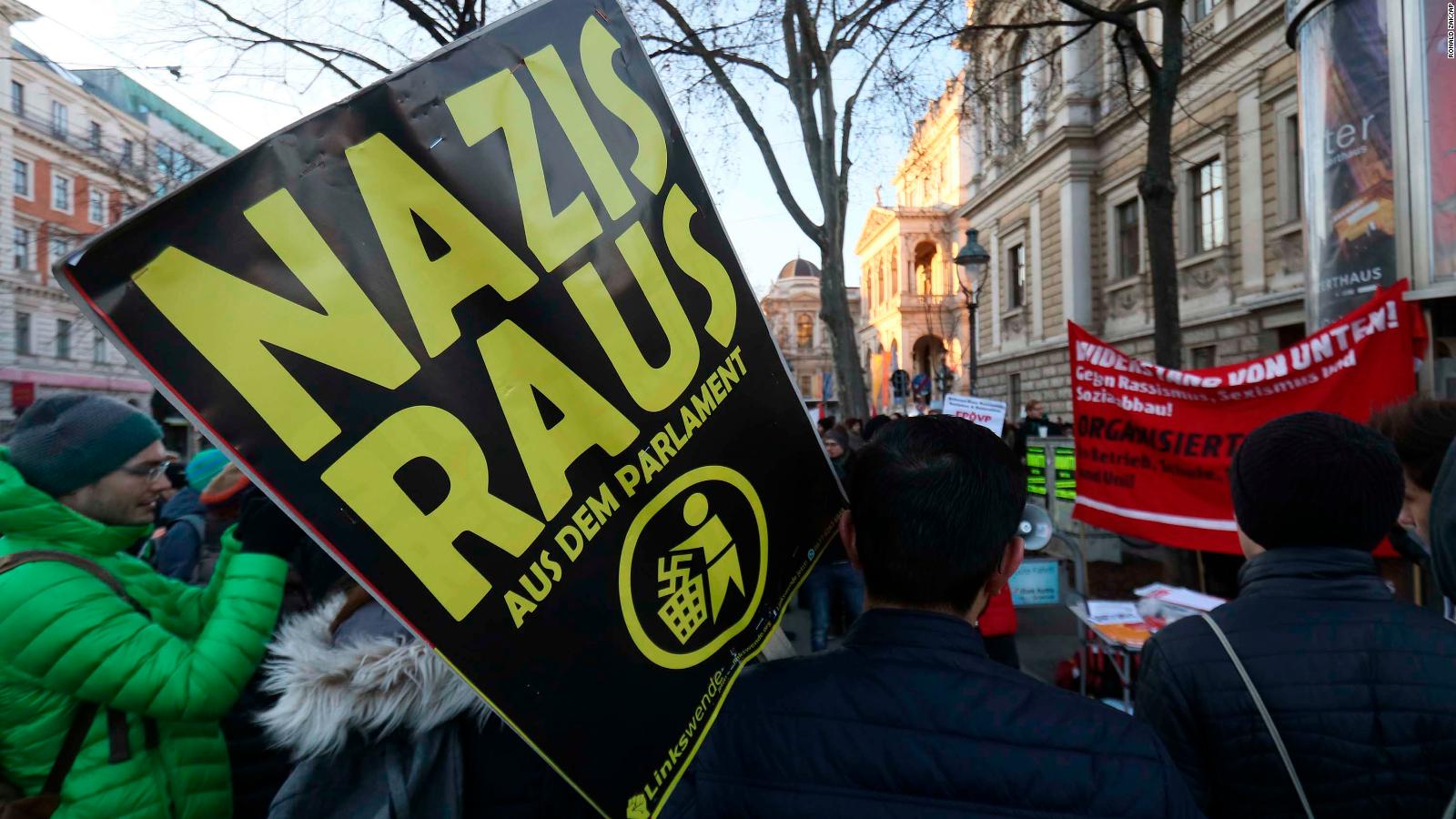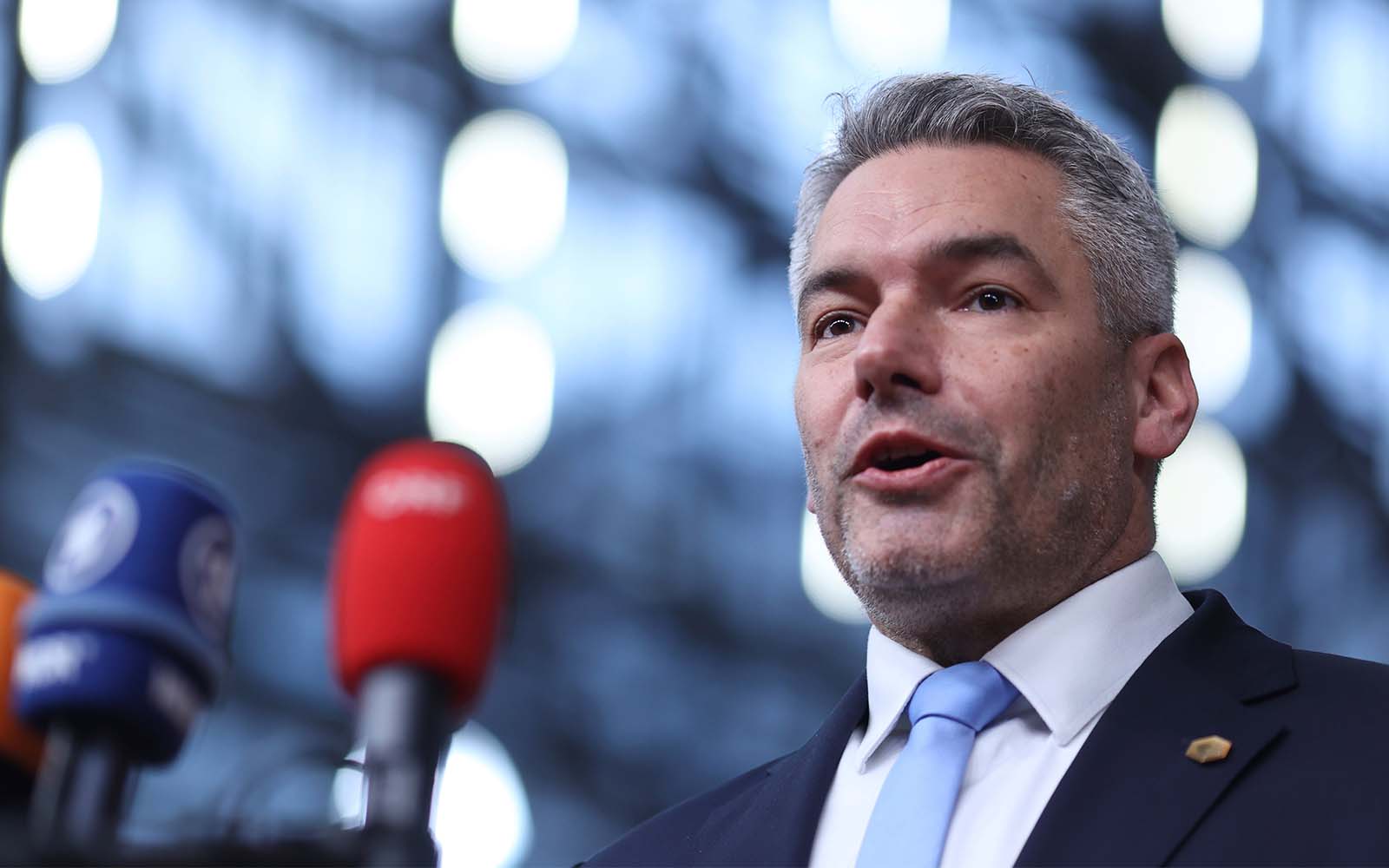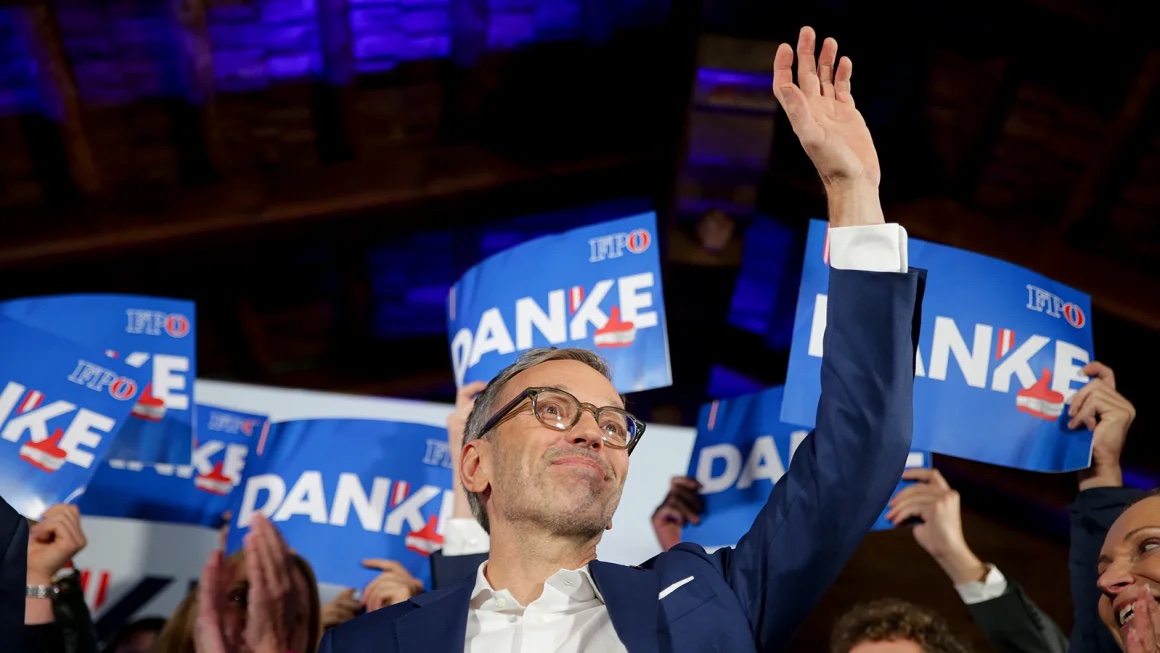VIENNA, Austria — Austria’s far-right Freedom Party, FPÖ, has achieved a political milestone, emerging as the leading party in the nation’s parliamentary elections with 29.1% of the vote, according to provisional results.
The party, led by Herbert Kickl, now finds itself in a position of unprecedented strength, outpacing the conservative People’s Party, ÖVP, and potentially reshaping the country’s political landscape.
“We have opened the door to a new era,” Kickl declared to jubilant supporters on election night, describing the result as “a piece of history.”
Kickl praised voters for their “optimism, courage, and trust” in delivering the FPÖ’s largest electoral win, as supporters celebrated the party’s return to prominence.
The victory is the latest in a string of electoral successes for far-right parties across Europe, as they capitalize on growing concerns over migration, the economy, and political dissatisfaction.

However, despite topping the vote, the FPÖ fell short of a governing majority, winning 56 seats in Austria’s 183-seat parliament. The second-placed ÖVP secured 52 seats, while the Social Democrats garnered 41 seats.
Kickl’s platform, focused on restricting immigration and asylum, and building what he called “Fortress Austria,” has resonated with many voters amid a flagging economy and anxieties about the future. His rhetoric, promising to restore “security, prosperity, and peace,” has driven the FPÖ’s surge, particularly among voters aged 35 to 59, according to initial post-election analyses.
The Freedom Party has proposed controversial policies such as firm restrictions on legal immigration, the promotion of “remigration” policies to return asylum seekers to their countries of origin, and the removal of pathways from asylum to citizenship.
These proposals, along with Kickl’s association with Hungarian Prime Minister Viktor Orban’s brand of “illiberal democracy,” have drawn both support and sharp criticism across Austria.
In an election shaped by migration, economic challenges, and the war in Ukraine, turnout reached a high 74.9%, reflecting the importance of the moment for Austrian voters.
However, despite the FPÖ’s success, forming a coalition will be no easy task.

The ÖVP, led by incumbent Chancellor Karl Nehammer, has ruled out working with Kickl, calling him “impossible to work with” and citing his embrace of conspiracy theories.
“It’s impossible to form a government with someone who adores conspiracy theories,” Nehammer said, signaling that his conservative party is unlikely to participate in a Kickl-led government.
This leaves Kickl with few coalition options.
The Social Democrats, Greens, and Neos have all rejected the possibility of forming a government with the far-right. Without the support of the ÖVP, Kickl’s FPÖ faces an uphill battle in establishing a ruling coalition.
However, pressure may build within the ÖVP for a compromise. Some in the conservative party have suggested that Nehammer should resign following the election result, though his general secretary has dismissed these calls.
Whether Nehammer’s hardline stance against the FPÖ will hold remains a critical question in the coming days of coalition talks.
FPÖ general secretary Michael Schnedlitz, addressing the election outcome, said, “The men and women of Austria have made history today,” though he offered no specifics about what kind of coalition the party would seek to build.
The Freedom Party has been part of previous coalition governments, but never in such a dominant position.
The election result has also stirred fears among some Austrians about the country’s political direction.
“I find it really sad that people get so close to radical right-wing ideas and ignore history,” said Vienna resident Nikolai Selikovsky.
In Vienna, the FPÖ performed poorly compared to the national trend, with the capital city largely voting for the Social Democrats.
Outside parliament, a small group of protesters held anti-Nazi banners in opposition to the FPÖ’s growing influence, reflecting the concerns of those who see the party’s far-right roots as a dangerous shift for Austria.
Kickl has courted controversy throughout his career and during this election, speaking of his desire to become Austria’s “Volkskanzler” (People’s Chancellor), a term that has uncomfortable historical connotations for some Austrians, as it echoes terminology used during Adolf Hitler’s rise to power.

The FPÖ itself was founded in the 1950s by former Nazis, and the party’s history continues to cast a shadow over its leadership.
As the dust settles on the election, Austria’s political future remains uncertain.
Analysts suggest that President Alexander Van der Bellen, who oversees government formation, may be hesitant to give Kickl a mandate to form a coalition, given the FPÖ’s divisive stances on the European Union and its failure to condemn Russia’s invasion of Ukraine unequivocally.
The party opposes EU sanctions on Russia, citing Austria’s historical neutrality.
For now, coalition negotiations are expected to be tense and drawn-out.
The possibility of an ÖVP-Social Democrat coalition, potentially with the support of the Greens or Neos, cannot be ruled out, but would represent a significant shift for both parties after years of rivalry.
Austria, like much of Europe, faces a period of political realignment.
As Kickl seeks to navigate the challenges of coalition-building, Austria’s place in the broader European order and its domestic policies on migration, asylum, and economic recovery hang in the balance.







